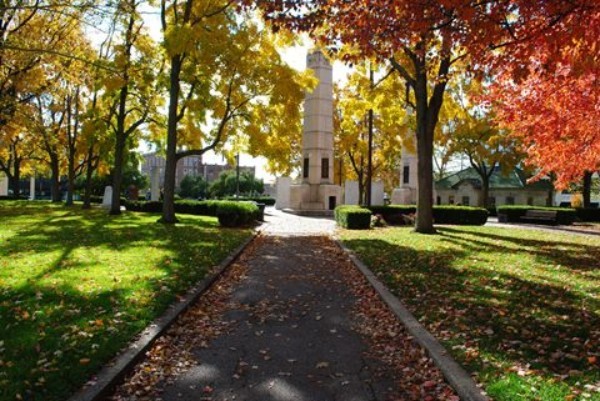Attached is a resolution which would authorize a proposed amendment to the Grand Rapids City Charter, in anticipation of presenting the proposed amendment to the voters at the election to be held on Tuesday, November 5, 2019.
The Proposed City Charter Amendment
In 2013, the voters approved a Charter Amendment to create a dedicated Parks Millage (Yes - 9,562 No - 6,367). The millage rate was set at .98 mills to be collected for 7 years.
This proposed amendment would add new language to the City Charter, at Title V "City Commission", Section 18(e) "Estimate of Expenditures - Submitted by City Manager"(Compiler's Paragraph 68), by adding a new sub-paragraph (4).
If approved by the voters, this City Charter amendment would permanently create a 1.25dedicated millage, to be allocated to and used for parks, pools, and playgrounds.
With Headlee rollbacks from the .98 mill rate adopted in 2013, the parks millage rate for tax year 2019 was .9475 mills. The median home price in the City of Grand Rapids is $110,000 which equates to Taxable Value of $55,000. At the current rate of .9475 mills the parks millage is $52.11 annually. At the proposed rate of 1.25 mills the parks millage would $68.75 annually. The increase would be $16.64 per year for a median home price.
The City Charter would be amended to include the following new language, within Title V "City Commission", Section 18(e) "Estimate of Expenditures - Submitted by City Manager''(Compiler's Paragraph 68), by adding a new sub-paragraph (4):
“(4) In addition to any millage levied pursuant to the above Section 18(e), and not limited thereby, the City Commission is authorized to levy and collect taxes annually in a sum of 125/1,000ths of 1 per centum (1.25 mills) of the assessed valuation of all real and personal property in the City to be allocated to and used for parks, pools and playgrounds commencing January 1, 2021."
Procedure for Amending the City Charter
The procedure for amending the City Charter is set forth in the Michigan Home Rule Cities Act (MCL 117.21 et. seq.), and is composed of several steps:
1. Adoption by the City Commission of a resolution proposing an amendment of the City Charter, setting language for the ballot and choosing a general or special election at which to place the proposed amendment before the voters. (The election cannot be sooner than 60 days after the adoption of the resolution.) The Home Rule Cities Act requires that a statement of purpose of the amendment be prepared, which consists of a true and impartial statement of the purpose of the amendment in 100 words or less in language that will create no prejudice for or against the proposed amendment. Initial publication of the proposal is also made at this time as part of the proceedings of the City Commission. This adoption requires a 3/5 vote of the members-elect of the City Commission.
2. Submission of the resolution containing the proposed amendment and the statement of purpose to the Attorney General and the Governor for their approval. If the proposed amendatory language or the statement of purpose must be changed to satisfy the Attorney General or the Governor, the resolution and the amended language must be again adopted and published.
3. The City must also comply with election law provisions with respect to notice of the election, including the calling of the election, absentee voter requirements and registration requirements.
Requirements for Ballot Language Involving a Millage
Michigan's General Property Tax Act contains several requirements, describing what must appear on the ballot when a local unit of government places a millage proposal before the voters for approval. That state law requires that the following appear on the ballot of the millage proposal:
• All local authorities created under state law, to which revenues from the millage will be disbursed;
• The millage rate to be authorized;
• The estimated amount of revenue that will be collected in the first year that the millage is authorized and levied;
• The duration of the millage in years;
• A clear statement of the purpose for the millage; and
• A clear statement indicating whether the proposed millage is a renewal of a previously authorized millage or the authorization of a new additional millage.




 Alerts Sign-up
Alerts Sign-up